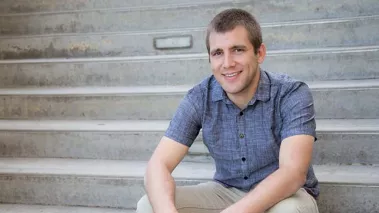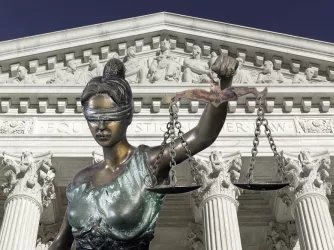Table of Contents
‘Los Angeles Times’ Shares Remarks from Student, Admins, Lawyers at the Heart of Cal Poly Pomona Lawsuit

A week ago, FIRE announced that California State Polytechnic University, Pomona was suspending its unconstitutional restrictions on speech during settlement talks for student Nicolas Tomas’s lawsuit against the school, brought as part of FIRE’s Stand Up For Speech Litigation Project. Tomas filed the suit in federal court after a campus police officer stopped him from handing out animal rights flyers outdoors on campus. Today, reporting by the Los Angeles Times reveals—yet again—the clash between college administrators’ desire to avoid intellectual conflict and the Constitution’s requirement that they allow the free exchange of ideas.
As the Times explains, public colleges like Cal Poly Pomona are government entities, so they are bound by the First Amendment—but they are also “susceptible to … political pressures.” Cal Poly Pomona spokeswoman Esther Tanaka said, “It's a balancing act sometimes to ensure people’s free speech but also make sure that everyone's education takes place without disruption.” Of course, all members of the campus community have a right to teach and learn free from harassment (as defined by law) or significant interruptions. But speech like Tomas’s—quiet, unobtrusive leafleting—doesn’t come remotely close to either.
FIRE’s Will Creeley spoke to the Times about how colleges often perform a cost-benefit analysis:
In many instances, college censorship stems from a basic risk-management calculation, said William Creeley, vice president of legal and public advocacy with the Foundation for Individual Rights in Education.
"Some administrators decide they won't stand for any controversy on their watch and seem to conclude that it's easier to stop students from speaking their minds than it is to allow students to debate the issues of the day and perhaps learn something," Creeley said.
Through the Stand Up For Speech Litigation Project, FIRE hopes to make clear to colleges that censorship is unlawful and will ultimately prove more difficult and costly than allowing open discourse on campus.
Thankfully, students like Tomas are willing to fight for their freedom of expression. According to the Times:
Tomas said he hasn't yet taken up leafleting again but is hopeful his case will empower other students.
"What I've learned is to keep going and stand up for what I believe in," he said. "Students are the voice for change on campus, and I wish more would get involved and tell administrators how they feel."
Read the rest of the article in the Los Angeles Times.
Recent Articles
FIRE’s award-winning Newsdesk covers the free speech news you need to stay informed.

LAWSUIT: Videographers sue to overturn National Parks Service arbitrary permit scheme

Supreme Court must halt unprecedented TikTok ban to allow review, FIRE argues in new brief to high court

Australia blocks social media for teens while UK mulls blasphemy ban
